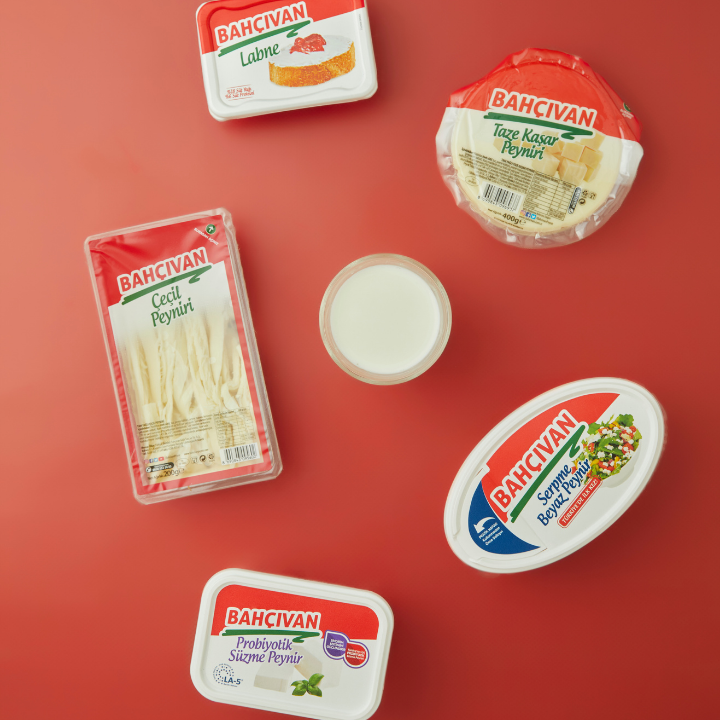
Cheese, the most consumed dairy product, is produced with various production methods. Different types of cheese decorate our tables and breakfast tables. Moreover, this indispensable product is very beneficial for human health due to its nutrient and vitamin content.
So what vitamins are in cheese? What are the health benefits of cheese? If you are wondering the answers to these questions, you can continue reading our content.
What are the Benefits of Cheese?
The benefits of cheese are truly countless. Cheese, which is a health storehouse with its rich calcium and protein content and the vitamins it contains, protects the person from various diseases if consumed regularly.
We can list the main benefits of cheese for human health as follows:
It is a rich source of protein: First of all, cheese is a great source of protein. For this reason, it accelerates and strengthens the development of muscles in the body. For this reason, it “s recommended for athletes to consume cheese.
It has a high calcium content: In addition to its protein content, cheese has a high calcium content. It supports bone development and prevents tooth decay. It is perfect for supporting the bone and tooth development of young children.
Benefits of Feta Cheese
The benefits of feta cheese come from its high mineral and vitamin content. Feta cheese, which is rich in probiotics, plays a big role in protecting the health of the intestines. Likewise, it is also very effective against disorders such as constipation and diarrhea.
Feta cheese, which effectively meets the body’s calcium needs, makes you feel more vigorous and energetic. Unique in terms of hair and skin health, feta cheese is an indispensable product for athletes as it supports muscle formation. Thanks to its vitamins A, B, C and D content, it strengthens the immune system and prevents diseases.
Benefits of Kashkaval Cheese
Kashkaval cheese is an indispensable ingredient in toast and hamburgers. Made especially from cow, sheep and goat milk, cheddar cheese is known for its rich calcium content. The benefits of cheddar cheese make this cheese a great health store for children of developmental age.
Cheddar cheese, which supports bone development, is especially recommended for children. We can easily say that this cheese, which is consumed fondly at breakfast, is also rich in vitamins and minerals.
Supporting the immune system, cheddar cheese is a unique food for eye and skin health. Having a high fat content, cheddar cheese increases the feeling of satiety. Known to be effective in improving night vision, cheddar cheese is effective against chronic constipation.
Benefits of Cottage Cheese
The benefits of cottage cheese are very important for organ activities and muscle development. This type of cheese, which contains high protein, is among the most preferred foods for people who do sports. Also, as with other cheeses, cottage cheese has a high calcium content. This makes cottage cheese an important part of bone development.
In addition, cottage cheese contains high amounts of vitamin B, which supports metabolic activities. Cottage cheese, which also helps the organs to function perfectly, strengthens cognitive activities, memory and night vision when consumed regularly.
What Vitamins are in Cheese?
Like all dairy products, cheese contains calcium, protein and vitamins from milk. The various methods and ingredients used during the cheese-making process can enrich the nutritional value of cheese. Most cheeses contain calcium, phosphorus, vitamin B6, A and C, which come directly from milk. In addition, cheeses also contain vitamins B, D, E and K. Of course, the vitamin content can vary from cheese to cheese. For example, feta cheese, one of the richest cheeses in terms of vitamin content, is a food that contains almost all types of vitamins.
Vitamin A
Vitamin A is one of the most common types of vitamin. This vitamin, which is stored in the liver and dissolved in fat, can be obtained from various types of cheese, especially feta cheese. Likewise, various foods such as butter, fatty milk and cream are rich sources of vitamin A.
This vitamin helps to build and maintain healthy body parts such as teeth, bones, soft tissue, mucus membranes and skin. The pigment that gives color to the retina of the eye is also produced by vitamin A. Adequate vitamin A intake can help the eyes to see better in low light. It also plays a major role in breastfeeding during and after pregnancy.
Vitamin A is also a powerful antioxidant. It protects cells from the damage caused by substances called free radicals and is a great prevention of diseases caused by these substances. Vitamin A intake is recommended especially against diseases such as cancer.
However, vitamin A deficiency has also been shown to cause various diseases and disorders. For example, vitamin A, which directly affects eye health, can cause various eye and vision disorders when the body lacks enough of it. Night blindness or xerophthalmia (corneal damage) can also be caused by vitamin A deficiency.
Vitamin B
Vitamin B is a group of vitamins that consists of 8 different complexes and has an effect on the body’s energy sources. The vitamins that make up the vitamin B group are B1 (thiavin), B2 (riboflavin), B3 (niacin), B5 (pantothenic acid), B6 (pyridoxine), B7 (biotin), B9 (folic acid) and B12 (cobalamin). Foods such as milk, cheese and eggs are among the foods that contain the most B vitamins.
This vitamin is responsible for the release of energy from carbohydrates, fats and proteins through metabolism. In addition, vitamin B lowers bad cholesterol and increases good cholesterol, thus reducing the risk of heart disease and supporting the nervous system. Vitamin B also promotes cell proliferation.
While vitamin B12 deficiency damages the nervous system, regular B12 intake protects against various diseases, especially dementia. In addition, vitamin B3, which is taken both externally and through food, is also effective against diseases such as dementia.
Vitamin C
Vitamin C is a type of vitamin that is especially good against chronic diseases. Vitamin C is found especially in fresh fruits such as oranges, tangerines, grapefruit, kiwi, pineapple and strawberries, and can also be found in dairy products such as cheese.
Vitamin C, which balances blood lipids, prevents various diseases such as gout by reducing uric acid levels in the blood. Vitamin C, which provides a higher rate of absorption of iron mineral taken with food, is also recommended against various cognitive problems that develop due to aging.
Vitamin D
Vitamin D, which is actually a hormone, is found in high amounts in foods such as cheese, milk and eggs. Vitamin D, which is effective in cell protection, protein synthesis, cholesterol biosynthesis and many more, also plays an important role in supporting emic health. It also helps prevent viral infections by supporting the immune system. Research has shown how beneficial vitamin D is for human health.
Like other types of vitamin, vitamin D helps prevent cancer. Muscle and bone health can also be supported by vitamin D intake. Vitamin D taken in the right amount is also great for skin health. Various skin diseases, especially those caused by hormonal reasons, can be prevented with the use of vitamin D.
Vitamin E
Another vitamin found in cheese is vitamin E. Vitamin E, which is fat-soluble like vitamins A, D and K, is stored in the liver. Vitamin E, which is absorbed in the intestine if taken with food, is very beneficial for organ health. The heart, kidneys, muscles and tissues can also store some vitamin E.
The proper functioning of the hormonal system is possible thanks to vitamin E. Vitamin E, which plays a role in the healthy production of sex hormones, provides protection against gynecological and urological diseases. In addition, being an antioxidant vitamin, vitamin E prevents free radicals from causing harmful effects in the body.
Vitamin E, which is taken into the body in sufficient amounts, is perfect for eye and skin health. This vitamin, which supports children’s eye development in a healthy way, supports the proper maintenance of organ activities in adults. Vitamin E intake is also recommended against skin damage, wrinkles and blemishes.
Vitamin K
Cheese, meat and green leafy vegetables are foods rich in vitamin K. Vitamin K, which should be taken 1 microgram per day per body weight, is a very important type of vitamin that the body needs for blood clotting and healing of wounds.
Vitamin K also helps keep bones healthy and prevents osteoporosis. Vitamin K, which improves bone density, reduces the risk of fractures and strengthens cognitive abilities in elderly individuals. This vitamin prevents mineralization in the arteries; helps lower blood pressure.















